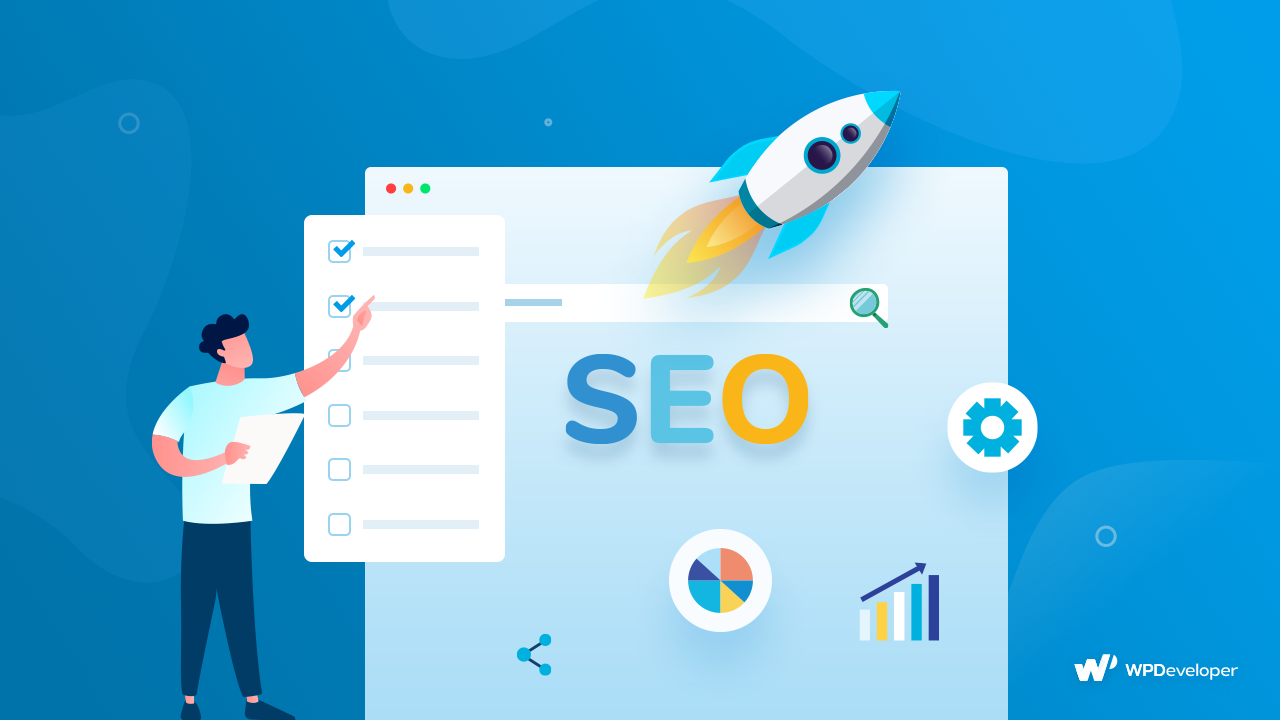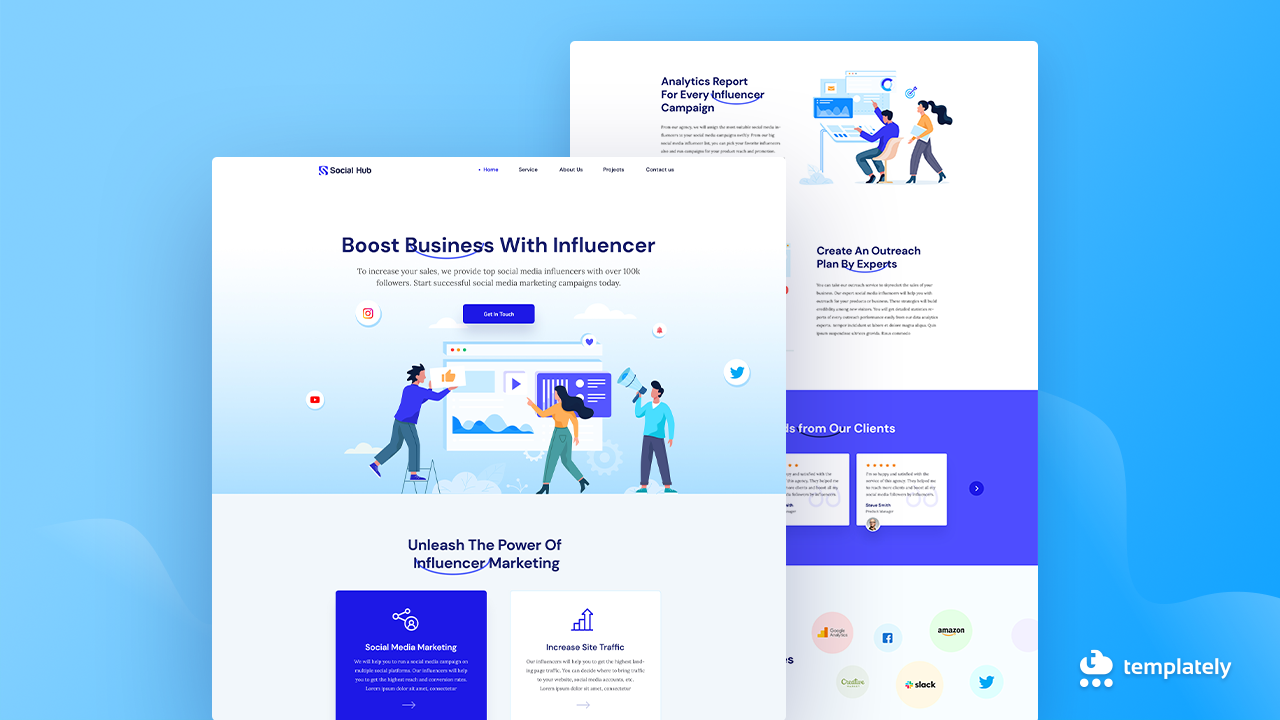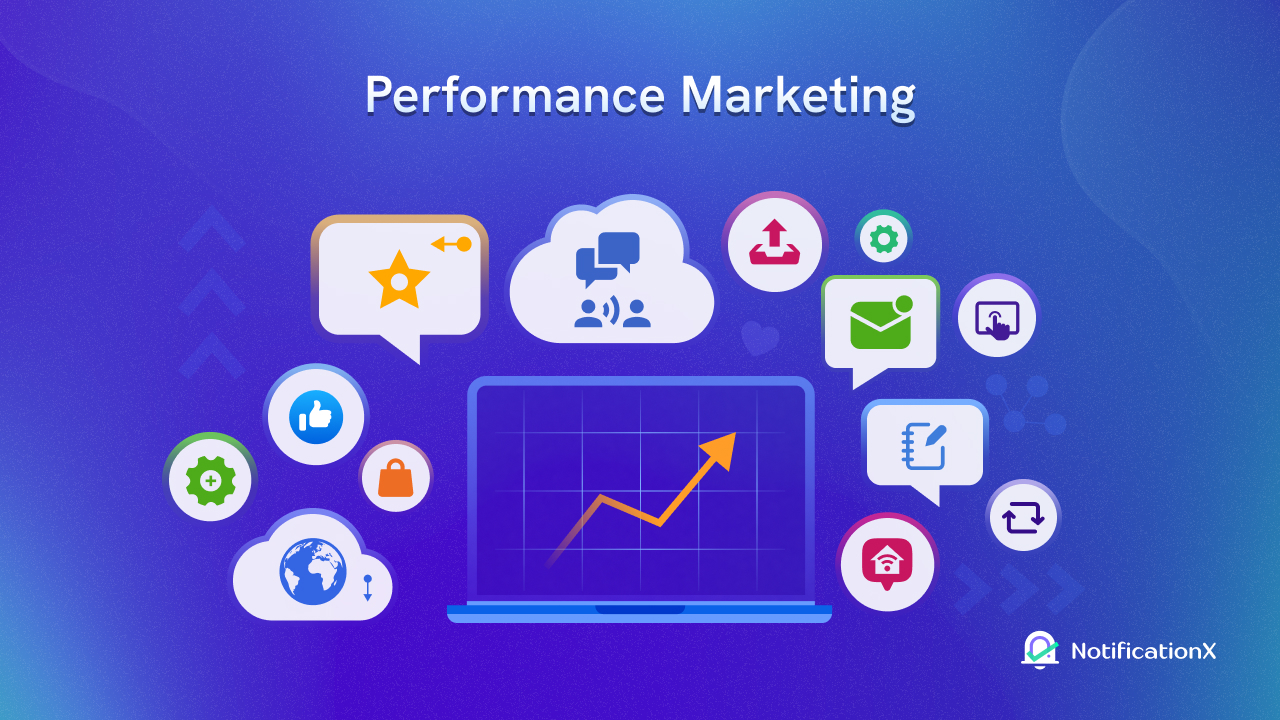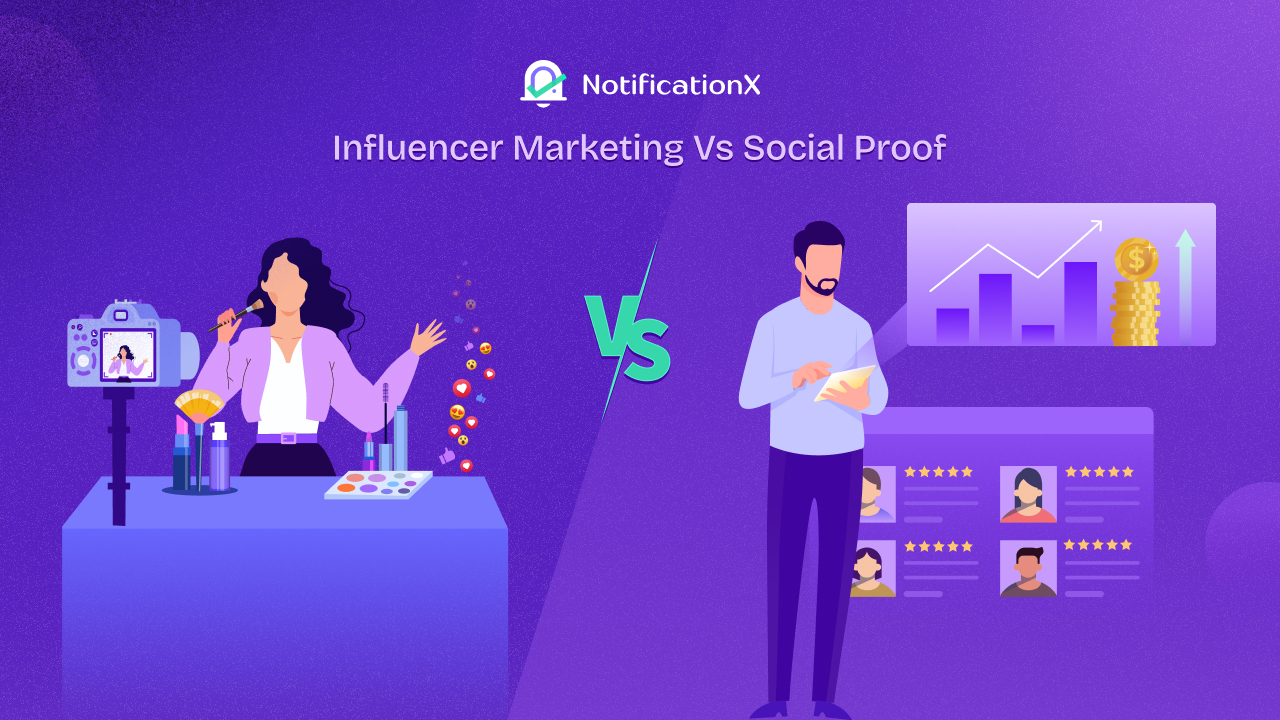Are you struggling to market your startup on a tight budget? You are not alone. Many startups face this challenge. However, the good news is that effective performance marketing does not require a fortune. This blog explores 10 low-cost strategies, backed by free resources, to help you reach your target audience and drive growth.

What Is Marketing in Startups?
Startup marketing is the strategic process of promoting and growing a new business. It involves identifying the target audience, creating a strong brand identity, and utilizing various marketing channels to reach potential customers. The goal of startup marketing is to generate awareness, attract customers, and drive sales.
Key aspects of startup marketing include brand development, market research, content marketing, social media marketing, search engine optimization (SEO), email marketing, public relations, and paid advertising. Startups can build a loyal customer base and achieve sustainable growth by effectively implementing these strategies.
Challenges of Low-Cost Startup Marketing
Low-cost startup marketing can be effective, but it presents unique challenges. What it needs is commitment efforts to reach a wide audience, build brand awareness, and compete with established businesses.
Additionally, managing multiple marketing channels and tracking results can be time-consuming and complex. Moreover, relying heavily on free or low-cost strategies may lead to a slower growth rate compared to those with larger marketing budgets.
Startups can maximize their impact and achieve remarkable results by leveraging effective low-cost marketing tactics. These strategies not only save money but also allow you to focus on what matters most: building your business.
In this blog post, we will explore 10 proven low-cost marketing strategies that can help your startup thrive. From content marketing and SEO to social media and email marketing, we will provide actionable tips and free resources to guide you along the way.
Throughout this guide, we will also highlight valuable free resources that can assist you in implementing these strategies. These tools and platforms will empower you to make the most of your marketing efforts without breaking the bank.
10 Proven Low-Cost Strategies for Startup Marketing
Startup marketing can be done with creativity and strategic planning if you can implement effective marketing strategies on a limited budget. Explore these proven low-cost techniques to maximize your impact and reach your target audience.
1. Content Marketing: Building Brand Authority

Content marketing is a powerful strategy that involves creating and distributing valuable, informative content to attract and engage your target audience. You can establish your startup as a thought leader and build trust with potential customers by consistently producing high-quality content.
One of the key benefits of content marketing is its ability to drive organic traffic to your website. When you create valuable content that addresses the needs and interests of your target audience, search engines are more likely to rank it higher in search results. This can lead to increased website visitors and potential customers.
Thought leadership is another important aspect of content marketing. You can position your startup as an authority in your field by sharing your expertise and insights through your content. This can help you build credibility and attract the attention of potential customers and partners.
Content Ideas for Content Marketing
Here are some content format ideas to consider for your startup’s growth in its content marketing:
Blog posts: Share your knowledge and insights through informative and engaging blog posts.
Infographics: Visualize complex data or concepts in a visually appealing way.
Case studies: Showcase your successes and highlight the value your product or service provides.
Videos: Create videos to demonstrate your product or service, share tutorials, or interview experts.
Free Resources for Content Marketing
To help you create high-quality content, consider using the following free resources:
Canva: A popular online design tool, Canva makes it easy to create visually appealing graphics and infographics.
Online writing platforms: Platforms like Google Docs and Grammarly can help you write clear and concise content.
Content marketing is a long-term investment that pays off with increased brand authority, website traffic, and customer trust. Start creating valuable content today to see the results for yourself.
2. Search Engine Optimization (SEO): Get Found Organically

Search Engine Optimization (SEO) is the practice of optimizing your website to improve its visibility in search engine results pages (SERPs). Through Implementing effective SEO strategies, you can increase your chances of appearing at the top of search results for relevant keywords, driving organic traffic to your website.
One of the most important aspects of SEO is keyword research. By identifying the keywords and phrases that your target audience is searching for, you can optimize your website content to match their search intent. This will help your website rank higher in search results and attract more relevant visitors.
On-page optimization is another crucial component of SEO. This involves optimizing various elements of your website, such as title tags, meta descriptions, and content, to include relevant keywords and improve your website’s readability. You can signal to search engines that your content is valuable and relevant to the search query by optimizing your on-page elements.
Backlink Building Tips for SEO
Backlink building is another important SEO strategy. Backlinks are links that point to your website from other websites. The more high-quality backlinks your website has, the higher it will rank in search results. You can build backlinks by guest blogging on other websites, submitting your website to relevant directories, and participating in online communities.
Free Resources for SEO
Here are some free SEO tools that can help you optimize your website:
Google Search Console: A free tool from Google that provides insights into your website’s search results performance.
SEMrush: A popular SEO tool that offers a variety of features, including keyword research, competitor analysis, and backlink checking. It has a daily free limit of use in the initial days of your startup you can use this for quality keyword research
Keyword research tools: There are many free online tools available for keyword research, such as Google Keyword Planner and KeywordTool.
SEO is an ongoing process that requires consistent effort and attention. You can position your website to rank higher for relevant keywords and reach your target audience by investing in SEO.
3. Social Media Marketing: Engage Your Audience

Social media marketing is a powerful tool for building brand awareness, engaging with your target audience, and driving traffic to your website. You can connect with potential customers and build a loyal following by creating and sharing valuable content on social media platforms.
Choosing the right social media platforms is essential for effective social media marketing. Identify the platforms that your target audience is most active on and focus your efforts there. This will ensure that your content reaches the right people.
Engaging Content for Social Media Marketing
Creating engaging social media content is key to attracting and retaining followers. Use visuals, such as images and videos, to make your content more appealing. Also, consider using interactive content formats, like polls and quizzes, to encourage engagement.
Social media listening is another important aspect of social media marketing. Through monitoring conversations and mentions of your brand, you can identify opportunities to engage with potential customers and address any concerns or questions they may have.
Free Resources for Social Media Marketing
Here are some free social media management tools that can help you save time and improve your social media marketing efforts:
Hootsuite: A popular social media management platform, Hootsuite allows you to schedule posts, monitor conversations, and analyze your performance.
SchedulePress: A social media scheduling tool, SchedulePress makes it easy to plan and publish WordPress content automatically on your social media accounts.
Canva: A design tool that can help you create visually appealing social media graphics.
Social media marketing is a powerful tool for connecting with your target audience and fostering meaningful relationships. Start by creating engaging content and listening to your followers to build a strong online community.
Read → 10 Free Social Media Marketing Courses You Can Enroll
4. Email Marketing: Nurture Leads And Build Relationships

Email marketing is a highly effective way to nurture leads, build relationships with customers, and drive sales. You can stay top of mind with your audience and encourage them to take action by building an email list and sending targeted email campaigns.
Building an email list is the first step to effective email marketing. You can collect email addresses through opt-in forms on your website, social media, and lead magnets, such as ebooks or webinars.
Creating valuable email content is essential for keeping your subscribers engaged. Send regular newsletters, promotional offers, and personalized messages that provide value to your audience.
Email segmentation is another important technique for effective email marketing. By dividing your email list into segments based on demographics, interests, or behavior, you can send more targeted and relevant messages to your subscribers.
Free Resources for Email Marketing
Here are some free email marketing platforms that can help you manage your email lists and send effective campaigns:
Mailchimp: A popular email marketing platform is Mailchimp which offers a variety of features, including automation, analytics, and A/B testing.
ActiveCampaign: A more advanced email marketing platform with features like CRM integration and marketing automation.
Email marketing is a cost-effective and powerful tool for reaching your customers and driving sales. Start building your email list today and send targeted campaigns to convert leads into loyal customers.
5. Public Relations (PR): Get Media Coverage

Public relations (PR) is a strategic communication process that helps you build relationships with the media and generate positive publicity for your startup. By securing media coverage, you can increase your brand awareness, establish credibility, and attract new customers.
Crafting compelling press releases is a key component of PR. Your press releases should be newsworthy, well-written, and easy to understand. Focus on highlighting the unique aspects of your startup and the value you provide to your customers.
Targeting relevant media outlets is another important aspect of PR. Identify the media outlets that your target audience follows and reach out to journalists and bloggers who cover your industry. Building relationships with these media professionals can increase your chances of securing media coverage.
Free Resources for Public Relations (PR)
Here are some resources that can help you with your PR efforts:
Online media directories: Websites like Cision and Muck Rack can help you find contact information for journalists and bloggers in your industry.
Press release distribution platforms: Platforms like PR Newswire and PRWeb can help you distribute your press releases to a wide audience.
Online media monitoring tools: Tools like Google Alerts can help you track mentions of your brand in the media.
Public relations is a valuable tool for building brand awareness and credibility. By crafting compelling press releases and targeting relevant media outlets, you can generate positive publicity and drive business growth.
6. Influencer Marketing: Leverage Credibility

Community marketing involves building and engaging with online communities that are relevant to your target audience. You can build relationships with potential customers, increase brand awareness, and gather valuable feedback by participating in these communities.
Identifying relevant communities is the first step to effective community marketing. Look for online forums, social media groups, and online marketplaces where your target audience is active.
Providing value and participating in discussions is essential for building relationships within online communities. Share your expertise, answer questions, and contribute to conversations in a helpful and informative way.
Free Resources for Influencer Marketing
Here are some popular online communities where you can connect with potential customers:
Reddit: A popular online forum Reddit with communities on a wide range of topics.
Niche-specific forums: There are many forums dedicated to specific industries or interests.
Social media groups: Look for groups on platforms like Facebook and LinkedIn that are relevant to your target audience.
Through participating in these communities, you can build relationships with potential customers and increase your brand’s visibility.
7. Community Marketing: Build Relationships

Referral programs are a powerful way to encourage your existing customers to promote your brand to their friends and family. You can acquire new customers at a lower cost and increase customer loyalty by offering incentives for successful referrals.
Offering rewards for referrals is essential for a successful referral program. Consider offering discounts, free products, or exclusive benefits to customers who refer new customers.
Creating a seamless referral process is another important factor. Make it easy for your customers to refer their friends by providing clear instructions and tracking links.
Free Resources:
Here are some tools that can help you create and manage your referral program:
Referral program software: Platforms like ReferralCandy and Invite & Convert can help you automate your referral program and track referrals.
Email marketing software: Use your email marketing software to send referral invitations and track the performance of your program.
Through implementing a referral program, you can leverage the power of word-of-mouth marketing and acquire new customers at a lower cost.
8. Referral Programs: Incentivize Your Customers

Partnerships and collaborations can be a powerful way to reach new audiences and expand your market reach. When partnering with complementary businesses, you can cross-promote each other’s products or services and leverage each other’s networks.
Identifying potential partners involves looking for businesses that share your target audience or offer complementary products or services. Consider reaching out to businesses in your industry or related industries to explore potential partnership opportunities.
Collaborating on marketing campaigns is a common way to partner with other businesses. This can involve co-hosting events, creating joint content, or offering cross-promotional discounts.
Free Resources:
Here are some resources that can help you find potential partners:
Networking events: Attend industry events and conferences to meet potential partners.
Online directories: Websites like Manta and Alignable can help you find businesses in your area.
You can expand your reach and reach new customers without spending a lot of money on marketing by forming partnerships and collaborations.
9. Partnerships And Collaborations: Leverage Existing Networks

Partnerships and collaborations can be a powerful way to reach new audiences and expand your market reach. When partnering with complementary businesses, you can cross-promote each other’s products or services and leverage each other’s networks.
Identifying potential partners involves looking for businesses that share your target audience or offer complementary products or services. Consider reaching out to businesses in your industry or related industries to explore potential partnership opportunities.
Collaborating on marketing campaigns is a common way to partner with other businesses. This can involve co-hosting events, creating joint content, or offering cross-promotional discounts.
Free Resources
Here are some resources that can help you find potential partners:
Industry associations: Join industry associations to connect with other businesses in your field.
Networking events: Attend industry events and conferences to meet potential partners.
Online directories: Websites like Manta and Alignable can help you find businesses in your area.
You can expand your reach and reach new customers without spending a lot of money on marketing by forming partnerships and collaborations.
10. User-Generated Content (UGC): Harness the Power of Your Customers

User-generated content (UGC) is content created by your customers, such as reviews, photos, or videos. UGC can be a powerful marketing tool as it can help you build trust with potential customers and promote your brand in a more authentic way.
Encouraging UGC involves creating a positive experience for your customers and making it easy for them to share their experiences. This can involve running contests or giveaways, using social media hashtags, or providing incentives for customers to share their content.
Leveraging UGC involves using customer-generated content in your marketing materials. This can include featuring customer reviews on your website, sharing customer photos on social media, or using UGC in your advertising campaigns.
Free Resources User-Generated Content (UGC)
Here are some tools that can help you collect and manage UGC:
Social media monitoring tools: Tools like Hootsuite and Buffer can help you track mentions of your brand and collect UGC.
User-generated content platforms: Platforms like Yotpo and Influenster can help you collect and manage customer reviews and testimonials.
Guest Posts or Interactive Review Section: Introducing an interactive section or page to your website or social media consisting of user-generated content can bring your marketing a trusted and successful campaign.
You can create a more authentic and engaging marketing experience for your customers and promote your brand through the power of word-of-mouth by leveraging UGC.
Grow Your Startup with Effective Low-Cost Marketing
Effective startup marketing does not have to be expensive. You can significantly impact your startup’s growth. Remember, consistency is key to implementing the low-cost strategies outlined in this blog and leveraging the free resources available. Continuously analyze your marketing efforts, track your results, and make adjustments as needed.
Subscribe to our blog for more valuable insights and actionable tips on startup marketing. Join our Facebook Community to connect with people like you and share your experiences. You can position your startup for long-term success by taking action and staying informed.






